Choosing driveway material is not easy – driveway replacement or remodeling is a very expensive investment that should serve you for many years. This task isn’t made any easier for you either by driveway replacement contractors from Glenview, whose offer is very wide. In this article, we will analyze the pros and cons of different driveway materials and consider what you should choose.
Table of Contents
Asphalt Driveway – Pros and Cons
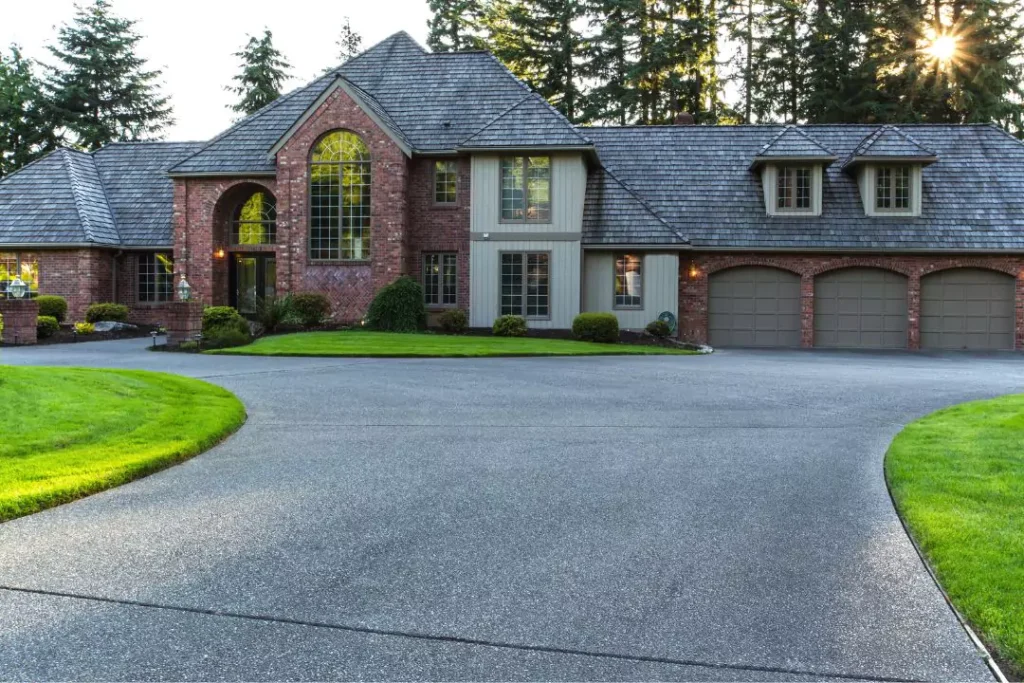
Asphalt driveways are very popular due to their relatively low price, resistance to cracking and ease of maintenance.
Typically, asphalt driveways last about 15-20 years, with proper maintenance and mild climates that can significantly extend this period. For example, asphalt pavements in hot climates in states such as Texas and Arizona are likely to be uneven after just 5-7 years, drastically reducing comfort. Asphalt driveways will also fail in places like Alaska, as freezing water expands and, consequently, damages the structure of the material leading to cracks.
The undisputed advantage of asphalt as a driveway material is that it can be easily repaired. Unlike concrete, relaying is possible, which involves covering an already existing driveway with a new outer layer.
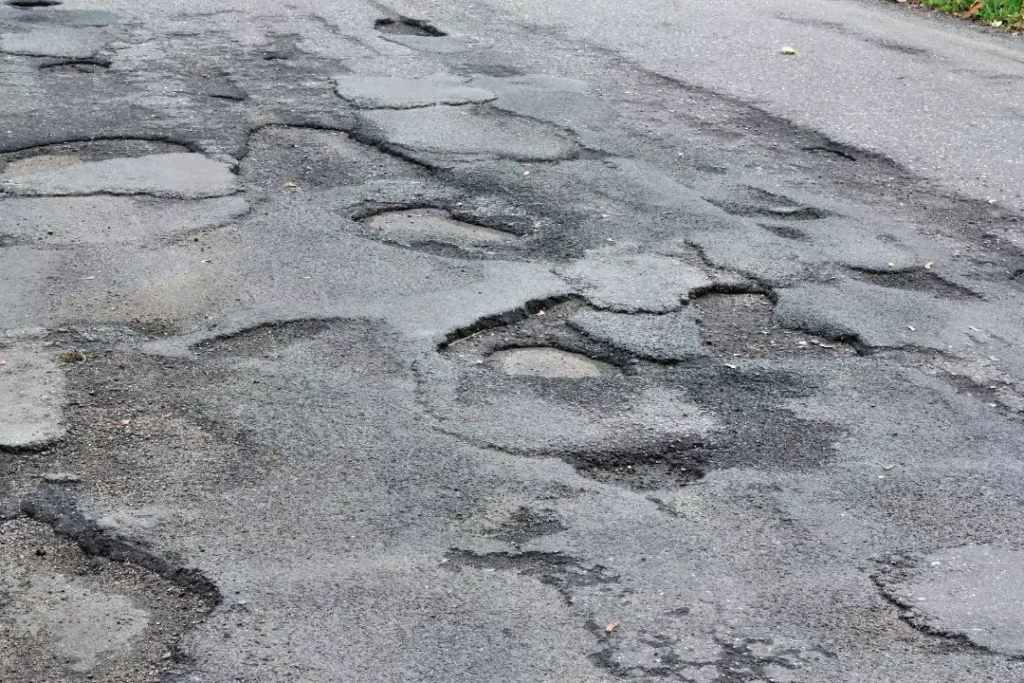
However, when deciding on a driveway made of asphalt, you have to reckon with its disadvantages. First and foremost, it will soften on extremely warm days, including in areas that are not associated with very high temperatures. In addition, asphalt driveways can only be laid by specialists – DIY installation is basically impossible, since you don’t have the right tools for it. Asphalt is also a rather expensive material if your driveway is small – a large part of the cost generated in laying it is generated by specialized machinery.
The aesthetic aspect also remains debatable. However, we can say with certainty that asphalt is not the prettiest driveway material and offers relatively little customization.
Pros and Cons of Asphalt as a Driveway Material
Pros:
- Affordable;
- More frost resistant than concrete;
- Less slippery than paving stones;
- Easy to remove snow;
- Easy to renovate later.
Cons:
- Low customization possibilities;
- May soften at high temperatures;
- Relatively high price when installing a small driveway;
- Ugly odor wafting after installation.
Asphalt Driveway Cost
The average price of an asphalt driveway in 2024 ranges from $7 to $15 per sqft, but costs can vary drastically depending on the technology used, the quality and thickness of the asphalt, and the area that needs to be covered with it. As a driveway contractor, we usually do driveways of 600 sqft, but if you live in a large property and there is also a house access road to be done, it can be 2,000 or even 3,000 sqft. The larger the area, the lower the cost per unit area. In standard terms, if you’re looking for a solid driveway for many years, you’ll pay about $6000-$8000 for it.
Concrete Driveway – Pros and Cons

There is a reason why concrete is used for airport runways, skyscraper foundations and highways. It is one of the most resilient driveway materials available. Although concrete is more expensive than asphalt, this translates into a longer service life – under optimal conditions, it can last more than 50 years.
Unlike asphalt, concrete performs well in hot climates because it does not soften and remains even. On the other hand, it will be less durable in cold areas where the temperature regularly drops below the freezing point of water.Under the influence of frost, concrete cracks very quickly, and while this does not adversely affect the safe use of such a driveway, the cracks look unsightly.
When choosing concrete as a driveway material, you also have to reckon with its difficult repair. Usually, it is almost impossible and the best way is to remove the cracked part of the surface and pour a new layer of concrete over it. However, if you have a knack for DIY and a lot of patience, you’ll probably be able to do it yourself, though of course we recommend using a professional driveway contractor like A.B. Edward.
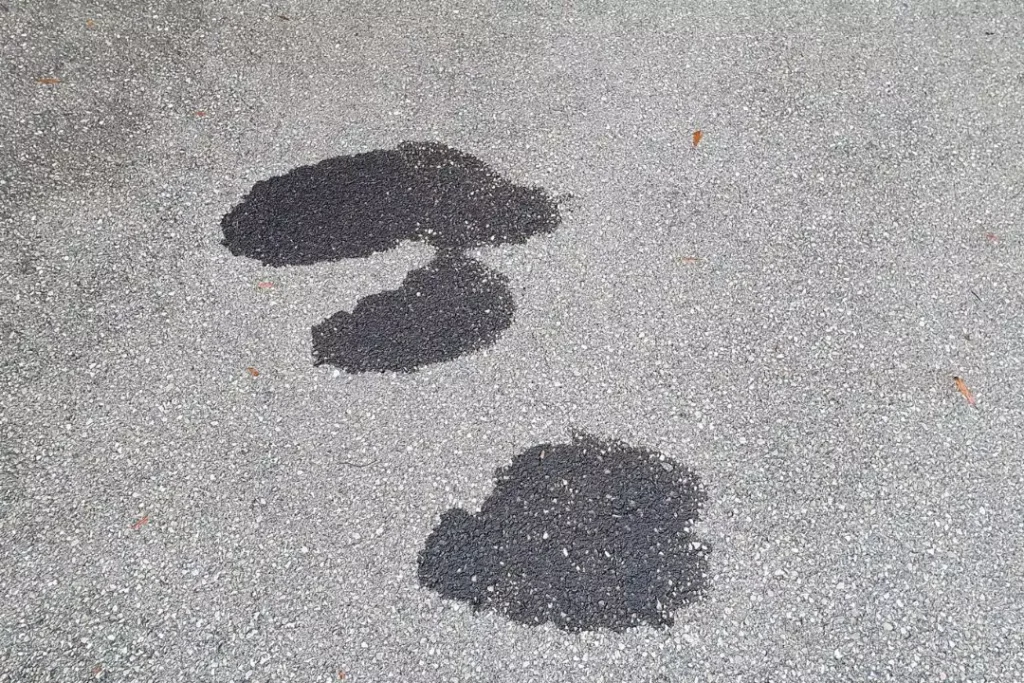
When choosing concrete as a driveway material, you must also keep in mind its absorbency – any stain from oil, grease, coolant or any other substance will be very visible and will definitely degrade the appearance of the entire surface. While cleaning with high-pressure water and strong detergents is possible, it takes quite a long time and requires regularity.
A huge advantage of concrete is its potential for personalization. Increasingly, we are receiving orders to make driveways using concrete mixed with natural pigments or dye, so that the surface takes on interesting color and patterns. It is also possible to give different textures – from striated, which clearly improves adhesion and water drainage, to very smooth, which will reflect the sun’s rays.
Pros and Cons of Concrete as a Driveway Material
Pros:
- Perfect wear resistance;
- Highly customizable;
- Easy to remove snow;
- Resistant to high temperatures.
Cons:
- Slightly more expensive than asphalt;
- Sensitive to frost;
- Any stains will be visible;
- Difficult to repair.
Concrete Driveway Cost
The average price of a concrete driveway in 2024 ranges from $5 to $18 per sqft. Unlike asphalt, the cost of installing a driveway per unit area is not as dependent on the size of the driveway, although of course such a relationship still exists. In the case of concrete, much more important is its resistance class and the use of any additives – frost-resistant concrete designed to carry heavy loads can be up to 4 times more expensive than conventional solutions. Typically, you’ll pay between $3,000 and $11,000 for a concrete driveway, assuming the area is about 600 sqft.
Gravel Driveway – Pros and Cons
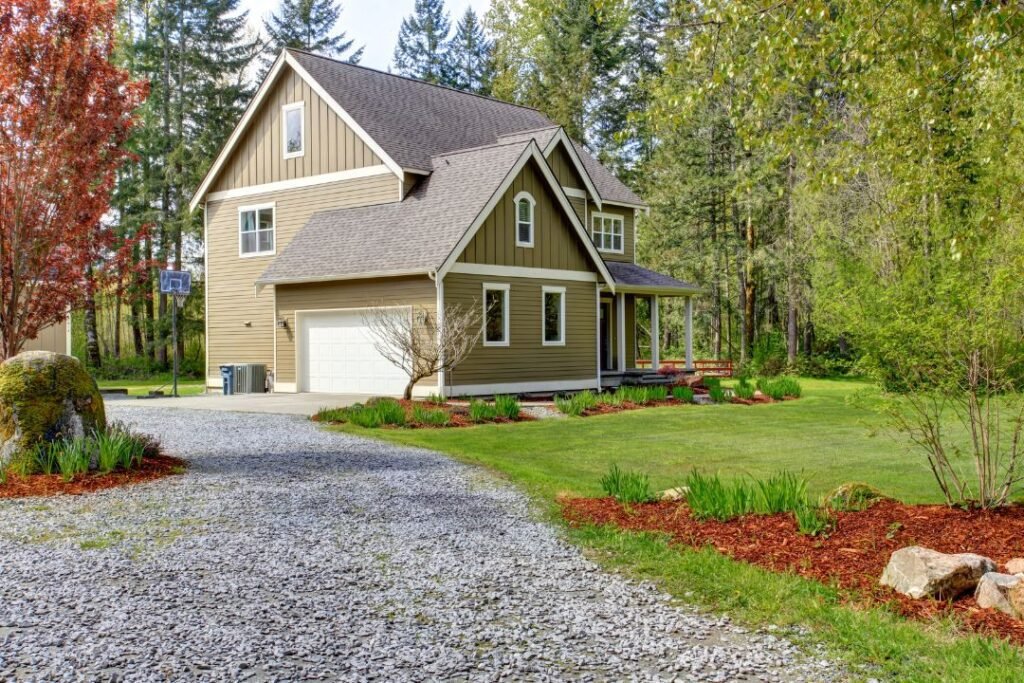
As a driveway material, gravel will work well for people with limited budgets, as long as they do not use the car too often. The undoubted advantage of such driveways is also their durability – for good measure, they can withstand more than 100 years of use.
Installing a gravel driveway is extremely easy – simply spread gravel on a flat and paved surface, compact this layer and, if necessary, backfill it with sand, which should later be evenly distributed, limiting the growth of plants. Over time, the gravel driveway will become uneven, but restoring it to its original state is very easy – just use a long board and gradually move the pebbles to form a flat surface again.
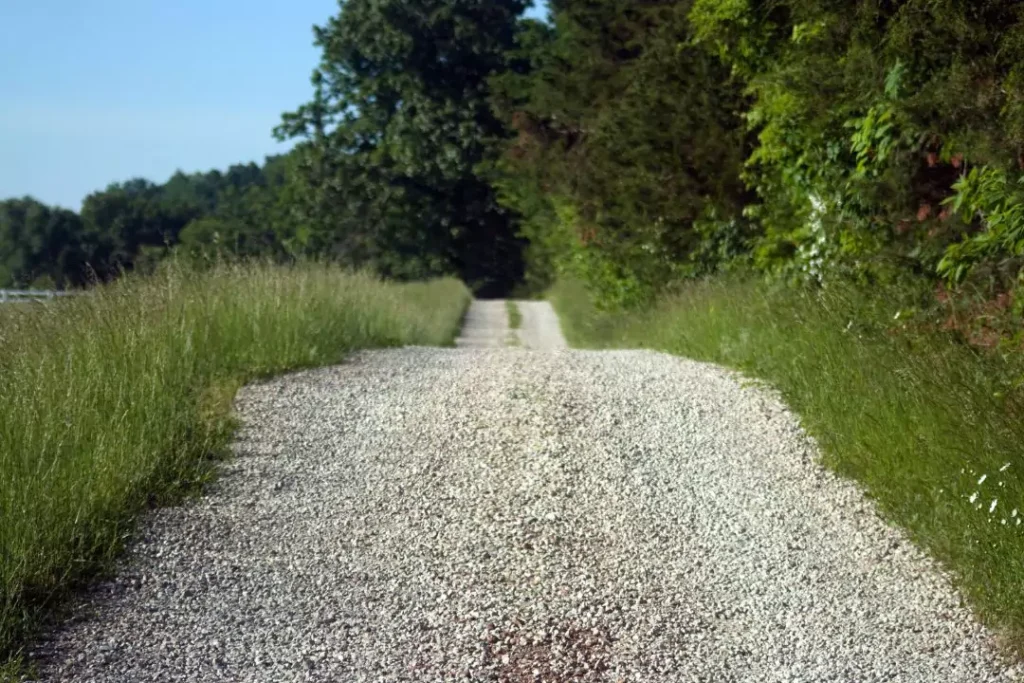
Gravel driveways are completely resistant to frost as well as high temperatures, and they are also not damaged by water. Customization possibilities are also very high, as gravel is obtained from many different types of stone with a wide spectrum of colors. However, it is not an ideal driveway material – clearing snow from such a surface is extremely inconvenient, dust can be released as you drive over the gravel, and bouncing pebbles can damage the paint on your car. Such a driveway is also very uncomfortable to walk on in stilettos and other high-heeled shoes.
Pros and Cons of Gravel as a Driveway Material
Pros:
- Very affordable;
- Maintenance-free;
- DIY friendly;
- Resistant to freezing as well as high temperatures;
- Quite a lot of customization possibilities;
- Simple repair process.
Cons:
- Can damage a car’s paint;
- Requires regular weed removal;
- Uncomfortable to walk on in heeled shoes.
Gravel Driveway Cost
Gravel driveways are very inexpensive, with the average price per sqft varying from $1 to $3. Of course, if you decide to use very rare or extremely aesthetic materials, you will be able to exceed the price of $10 per sqft, but realistically, this is a budget solution, so you will pay between $600 and $3,000 for a gravel driveway.
Brick Pavers Driveway – Pros and Cons
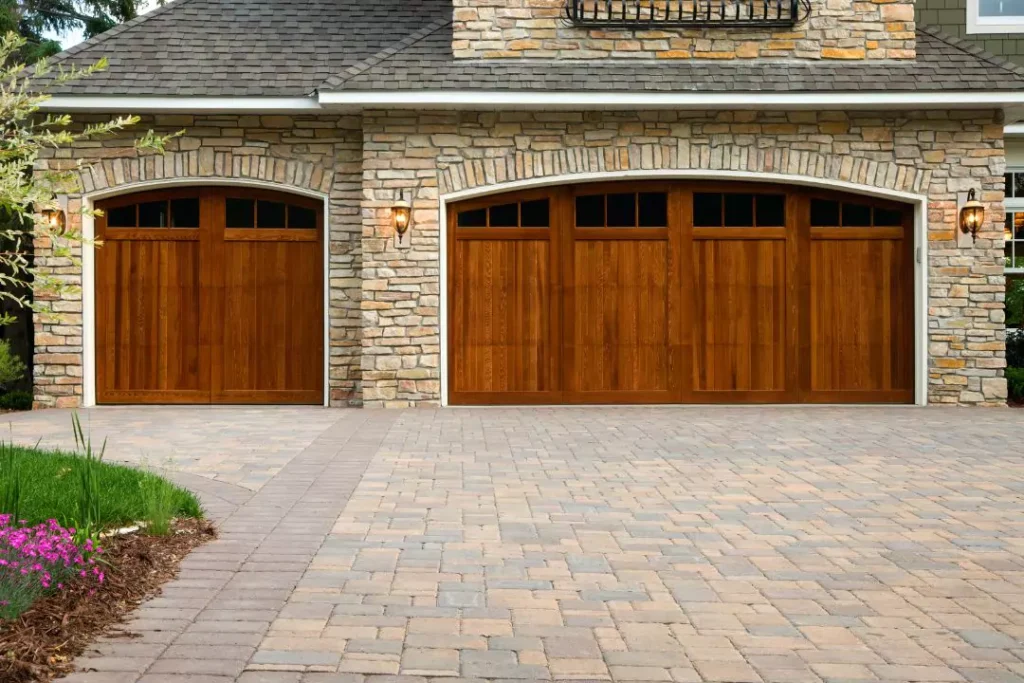
If you care about above-average aesthetics, brick and stone pavers should interest you. Although their installation is labor-intensive, the visual effect as well as the comfort of using such a driveway will compensate for the higher expenditure. We should also add that the range of available materials and finishes is virtually unlimited.
“Pavers” is a very broad term, but usually, it includes stone or brick blocks used for masonry driveways, sidewalks or garden paths. Driveway pavers are usually rectangular in shape, but you will also find pentagons and hexagons.
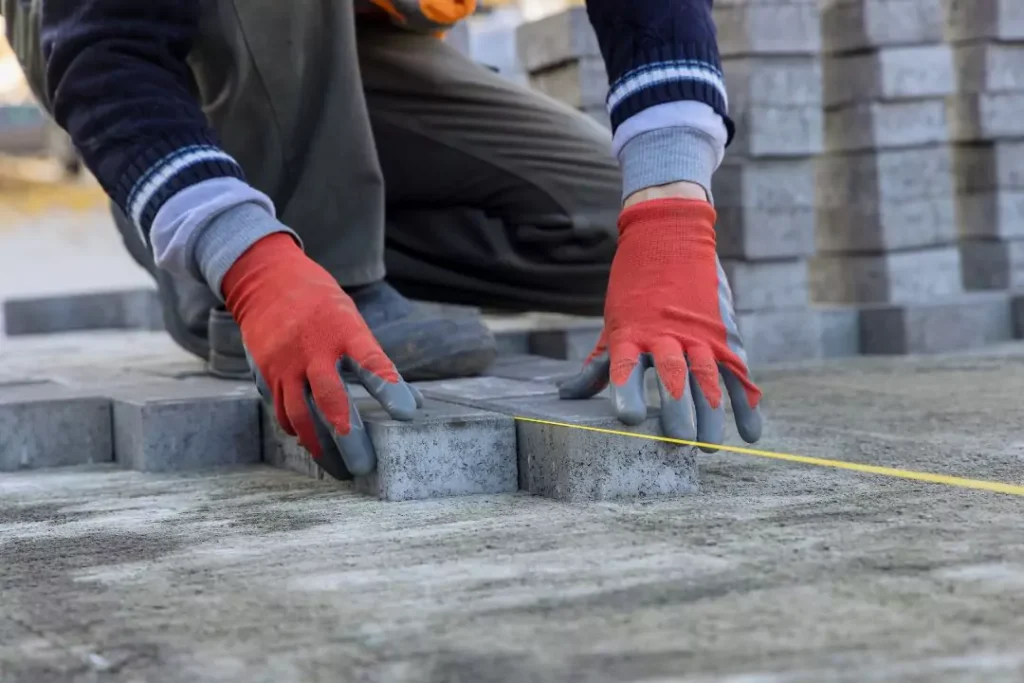
The undoubted advantage of brick and stone pavers as driveway material is their durability – as a raw material, they can be used for more than 100 years. However, this does not mean that throughout this period maintenance and even replacement of the driveway will not be needed. As it turns out, by far the most sensitive element of the entire construction are the joints, which over time, will become overgrown with weeds, and the sand filling them will be blown away by the wind. In practice, once every 20-30 years, the entire driveway should be taken apart and laid anew. To do this, old pavers can be used, which drastically reduces the cost of such an renovation.
Unfortunately, as with any driveway material, stone and brick pavers also have disadvantages. First of all, they are relatively sensitive to frost, and like concrete, they can also become saturated, so regular cleaning with a pressure washer is necessary. It also happens that some pavers are also slippery, which can be dangerous in winter.
Pros and Cons of Pavers as a Driveway Material
Pros:
- Very attractive;
- Easy maintenance;
- Simple repair process;
- Long-lasting;
- Resistant to high temperatures.
Cons:
- High initial cost;
- Vulnerable to frost;
- Installation is very time-consuming and requires a lot of expertize.
Pavers Driveway Cost
Realistically, brick pavers cost about $20-$50 per sqft. The price is highly dependent on the size of the pavers (the smaller they are, the more expensive the installation service) and the material used. High-quality stone or brick can translate into up to 2x the cost of purchasing the material. In most cases, a brick driveway costs between $12,000 and $30,000.
How to Choose a Driveway Material?
In this article, we introduced you to the 4 most popular driveway materials, but so far we have not answered the title question. So let’s see what the experts at A.B. Edward recommend.
Driveway Material for Limited Budget
If you don’t have a big budget for driveway installation, it’s worth opting for asphalt. Although gravel can be up to 5 times cheaper, its operation is uncomfortable and frustrating after time. A well-installed asphalt driveway will serve you for more than 20 years in a good climate. Remember, however, that it is worth regular maintenance.
Driveway Material for a Lifetime Use
If you are looking for driveway material that will serve you for many years, you should consider investing in stone pavers. An excellent grade of stone is basalt and granite – with proper maintenance and normal use, they will still serve your grandchildren.If you use your car relatively infrequently, it’s also worth comparing offers on stone paver driveway.You may find that it will be cheaper, and its resistance will be very comparable.
Mid-range Driveway Material
The golden mean combining good durability, aesthetics and relatively low installation cost is concrete. Depending on your expectations, it can be gray, black or brown. The surface can be adjusted to drain or smooth, and you can also modify the resistance of the mix. If you deem it appropriate, it is also possible to install heating tubes, which will clearly facilitate snow removal from the driveway in winter.
FAQ
What is the cheapest driveway material?
The most budget-friendly material is gravel.
What driveway material will last the longest?
In our opinion, the most durable are stone pavers.
What driveway material requires the least maintenance?
If you are looking for a driveway material that does not require regular maintenance, asphalt, gravel and stone pavers should be a good choice.

